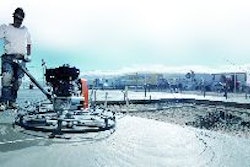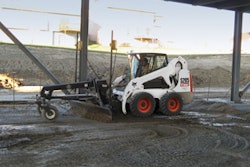Would your company be able to handle the unexpected loss of one of its managers? The sudden departure of a high-level employee is not something any organization wants to face, whether the individual suddenly resigns from the company - or worse.
Unfortunately, we recently encountered the "or worse" scenario with the sudden death of our national sales director, Phil Merrick, at the age of 50. Phil was a good friend and "big brother" to many of us who worked with him during his 24-year tenure at Cygnus Business Media. He was also a valued employee with years of knowledge and relationships that will be very difficult to replace.
With Phil's untimely passing, we found out first hand how hard it can be to pick up the pieces when the unthinkable occurs. Once the initial shock and grief passes, you're faced with the reality of trying to make sure the work left behind still gets done and clients' needs are met. At the same time, you're trying to come to grips with your own personal sense of loss.
We've been lucky in that Phil left his "house" in pretty good order, enabling us to adapt fairly quickly. Yet, it's a hard lesson - you have to be prepared for what seems unthinkable.
If you were faced with this situation, how might you cope? Would you have the personnel in place with the knowledge and experience to take over that individual's responsibilities? Would they be able to effectively continue or complete the work that had been started? Would you be able to access critical files, data or contacts?
Ongoing communication between management level employees about the projects in which they're involved is crucial for any business, but especially so in the construction industry. Not only can managers share ideas and ensure all aspects of projects are being covered, regular communication gives everyone at least some knowledge of what the others are doing in case someone new must take over.
Good record keeping is also a must. Managers should make brief daily notations of their activities, including the progress made, any problems encountered and what needs to happen next. Notes should be kept on any client or vendor contacts covering what was discussed and any follow-up action required. They should also be kept for any confrontations and/or discipline involving employees.
Organization of key data is crucial, as well. Whether it's on a computer or in a file cabinet, data should be maintained in a readily identifiable format to enable others to access it in the event of an employee's absence or departure. Determine the most logical and clear-cut format, then check to be sure managers are using it. At the very least, make sure someone else in the office knows how to find the information in a pinch.
Moving on after a loss is never easy. Here at Cygnus, we continue to struggle to fill the very large shoes Phil left behind. Yet, we keep at it, both because it's necessary and because we know it's what he would have wanted. Phil enjoyed working on Equipment Today and our other construction publications, and was passionate about the equipment industry. We know he would want us to continue to succeed. And I'm pretty certain he's watching over us to make darn sure we do.



















